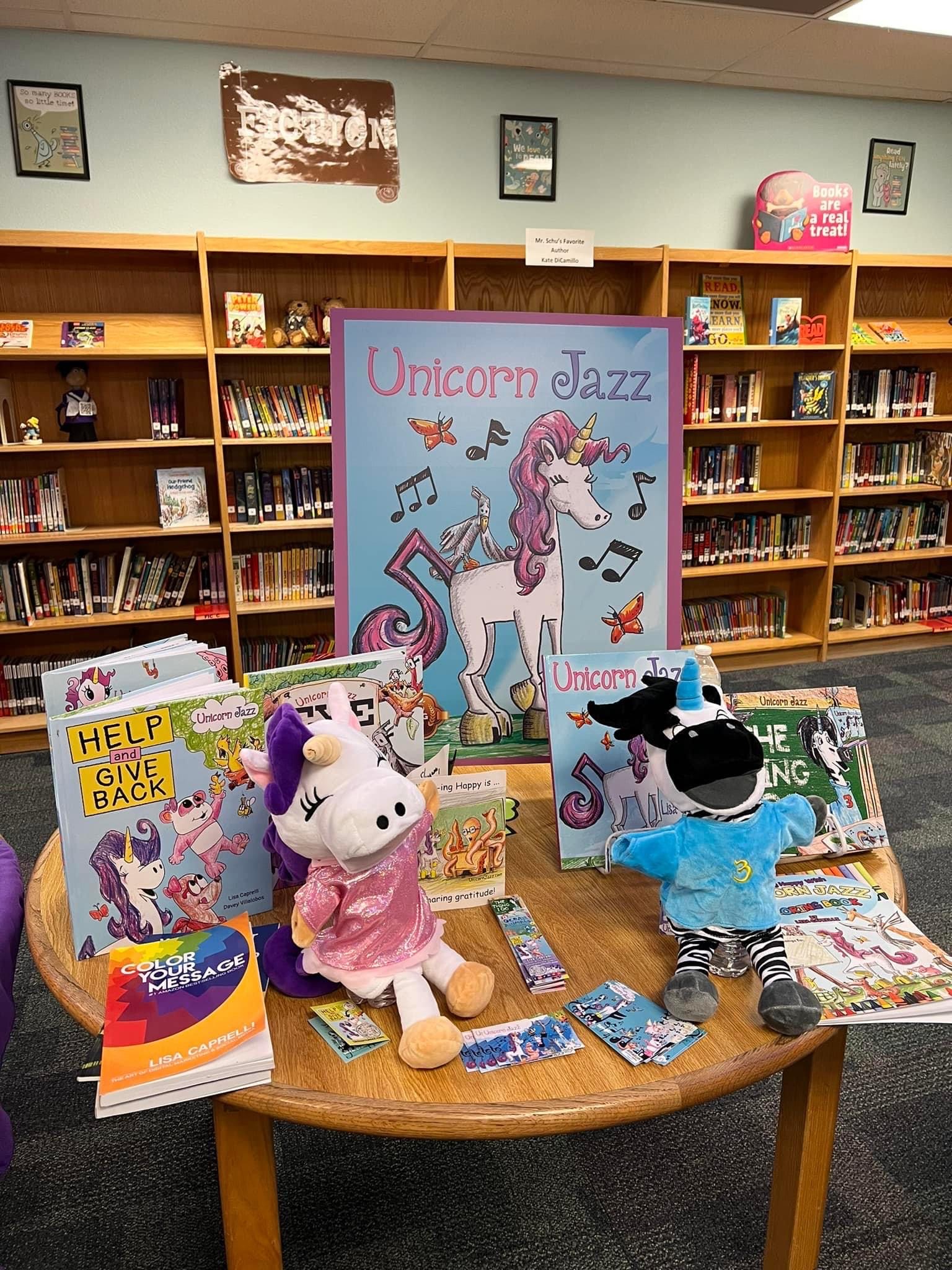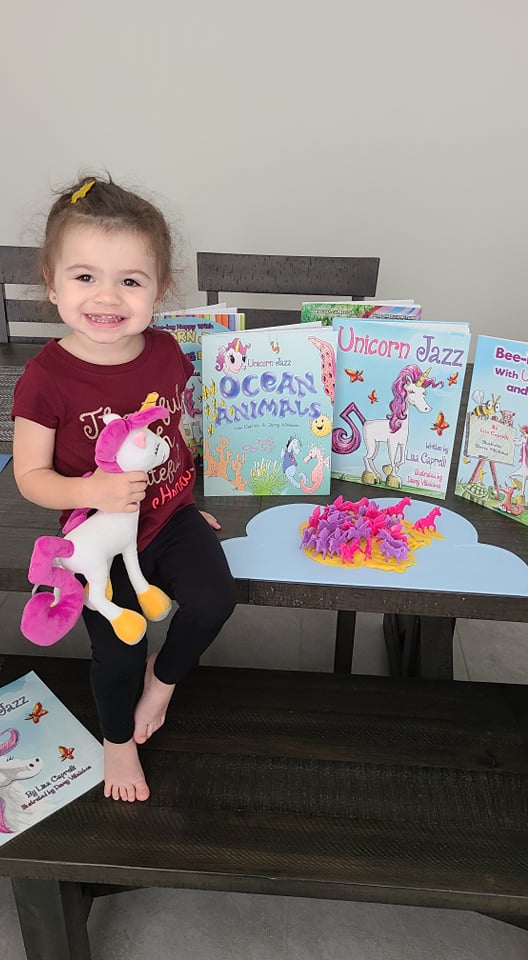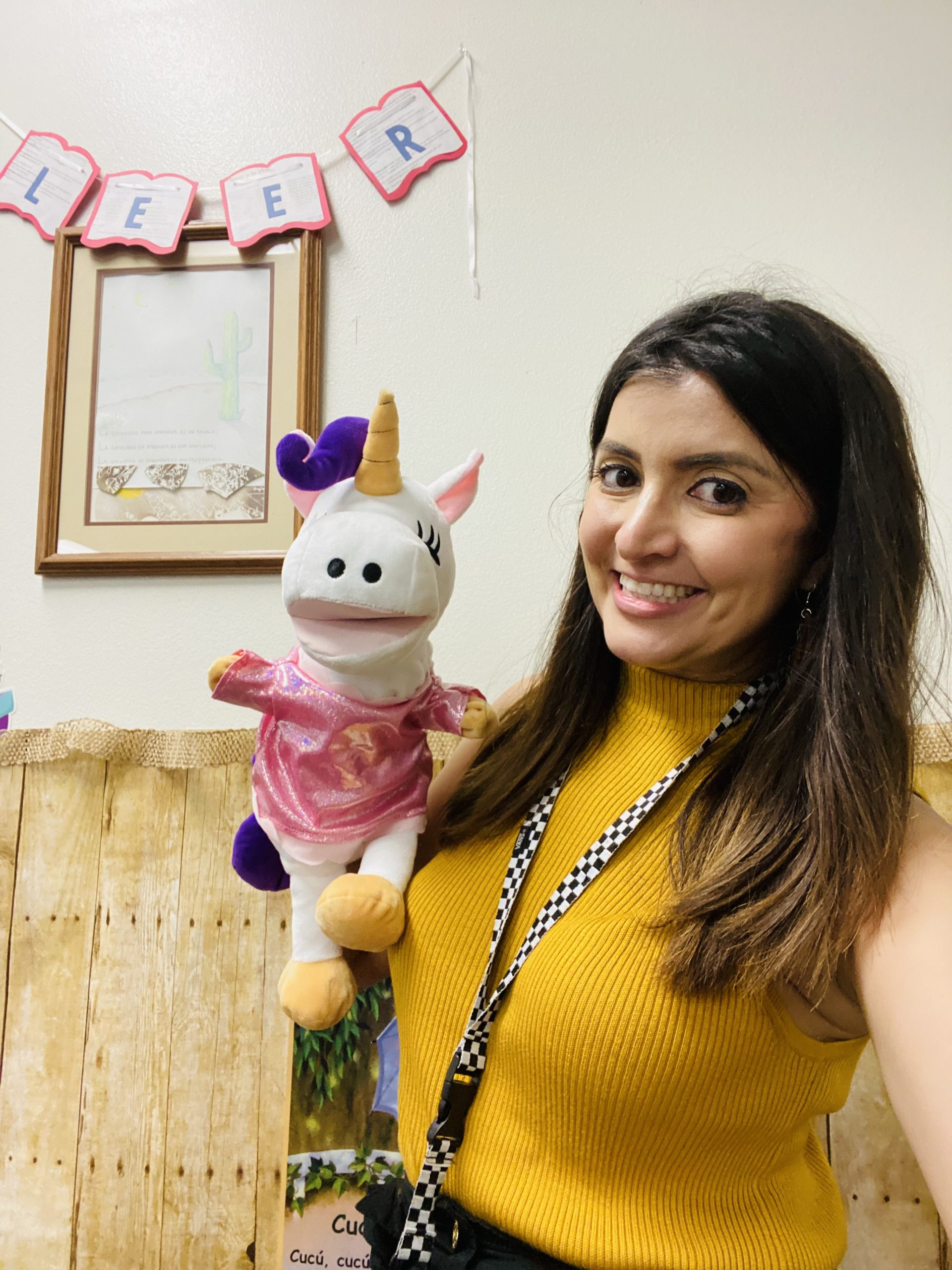How Puppets Encourage Play: How Puppetry Fosters Cognitive Growth in Children
Puppets bring magic to toy shelves, classrooms and pretend play, captivating children with lively imagination and colorful stories.
From Unicorn Jazz InspirED collection, By Lori Vasquez, RN BSN, PMHNP
How Puppets Encourage Play
Puppets promote cognitive, linguistic, emotional, and social development in children. As a Psychiatric-Mental Health Nurse Practitioner (PMHNP), I have experienced firsthand the extraordinary influence puppets can bring to everyday play and learning.
Through puppet playtime, children are engaged in imaginative play that allows them to explore complex emotions, situations, and ideas in a safe, controlled environment. This play often involves imitating adults, providing an avenue for children to practice and understand the world around them.

Six Benefits to Playing with Puppets:
- Enhances Language Development: As children interact with a puppet, new words, phrases, and ways of speaking, and bolstering their language skills are created. Research suggests that pretend play can significantly improve a child’s vocabulary and linguistic capabilities.
- Boosts Creativity: Puppetry encourages children to create characters, narratives, and scenarios, thereby fostering imaginative thinking and creative problem-solving skills.
- Develops Social Awareness: Puppets often act as proxies for real-world interactions, helping children understand and navigate social scenarios. It aids children in understanding different perspectives and empathizing with others.
- Promotes Emotional Expression: Puppet play provides a secure environment for children to explore and express their feelings, thereby aiding in emotional regulation and understanding.
- Encourages Cooperation and Teamwork: Coordinating a puppet show or a puppet play scenario can help children learn the importance of cooperation, sharing, and teamwork.
- Enhances Fine Motor Skills: The physical aspect of manipulating puppets helps in developing children’s hand-eye coordination and fine motor skills.

Playing with puppets provides an enriching opportunity for children to explore their creativity, learn new language skills, develop empathy, and manage their emotions effectively. The role of puppets extends beyond mere playthings, serving as facilitators for children’s comprehensive development.



References:
Berk, L. E., Mann, T. D., & Ogan, A. T. (2006). Make-believe play: Wellspring for development of self-regulation. In D. G. Singer, R. M. Golinkoff, & K. Hirsh-Pasek (Eds.), Play = Learning: How play motivates and enhances children’s cognitive and social-emotional growth (pp. 74-100). Oxford University Press. Goldstein, T. R. (2011). Correlations among social-cognitive skills in adolescents involved in acting or arts classes. Mind, Brain, and Education, 5(3), 97-103. Ranz-Smith, D. J. (2007). Teacher perception of play: In leaving no child behind are teachers leaving childhood behind? Early Education and Development, 18(2), 271-303. Russ, S. W. (2004). Play in child development and psychotherapy: Toward empirically supported practice. Psychology Press.


